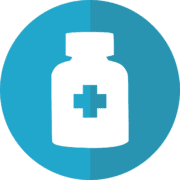What Your Pharmacist Can’t Tell You, Unless You Ask
Naturally people are under the assumption that paying for their medications through their insurance plan allows them the best price available, however, this is not always the case. Consumers are losing out on potential savings because of “gag clauses” that prevent pharmacies from disclosing lower prices for prescription medications if paid “out-of-pocket” instead of using their prescription benefits. In fact, a 2018 study in JAMA found that about 1 in 5 prescriptions are being overpaid!
Unfortunately, the financial burden of prescription medications often causes patients to change the dose to make the medication last longer or choose not to take the medications at all. This is especially concerning for patients taking medication for chronic illnesses. At a time when premiums, deductibles, and copays are far from affordable for the average American, finding ways to make your prescriptions more affordable is essential.
How did we get here?
Pharmaceutical Benefit Managers (PBMs) are companies that act as intermediaries between pharmacies, drug manufacturers and insurance companies. The role of PBMs in the prescription drug marketplace is quite far-reaching, yet surprisingly most consumers know little or nothing about them. PBMs establish formularies (the list of drugs covered by the health plan), decide which pharmacies are included in the network, process claims, and even operate their own mail-order pharmacies. PBMs negotiate deep discounts with drug manufacturers, and in return, those manufacturers benefit from having their drugs widely available to consumers. PBMs reimburse pharmacies a certain percentage for each medication, and charge plan sponsors (insurance companies) much higher rates for those same medications, pocketing the difference. Very simply, PBMs make enormous profits as a result of cleverly crafted contracts and operate with virtually no oversight.
These “gag clauses” that ultimately hurt the consumer are found in many of the contractual agreements between PBMs and pharmacies. If pharmacists don’t play by the rules and volunteer lower-cost alternatives, they risk being penalized and/or dropped from the network.
What is being done about it?
Recently there has been a movement to create more transparency for consumers when buying their medications. Many states have already passed legislation, or have bills pending, that ban the practice of gag clauses. The “Patient’s Right to Know Drug Prices Act” is one of two new bills recently introduced in the Senate. This bill advanced last month for a full Senate floor vote and there is hope that the other, “Know the Lower Price Act” will too.
The bottom line is that you or your trusted advocate must be proactive in every aspect of your healthcare. The only way to really know if you are receiving the lowest possible price for your medications is to do some research and ask a lot of questions. Here are some tips that may help you lower the cost of your prescription drugs*.
- Pay with cash: Ask your pharmacist if paying by cash will get you a lower price. Many pharmacists are not allowed to disclose that information to their customers unless they are specifically asked.
- Shop around: A recent Consumer Reports’ Special Report on drug costs found that there were enormous discrepancies in costs for several common generic drugs depending on where a prescription was filled. For example, after comparing cash prices from chain pharmacies, supermarket drugstores and independent pharmacies, a one month supply of atorvastatin (generic Lipitor, 20mg) ranged from $10.00 at the online pharmacy HealthWarehouse.com, to $135.00 at CVS & Target!
- Look for discount programs: Find out if your pharmacy has an in-store discount program or prescription card that allows you to receive additional savings on your prescriptions.
- Use an online service: There are some free, online services that can help consumers quickly get information on where to get the best cash price for a prescription.Good Rx – Collects prices and discounts from thousands of pharmacies. Consumers can get a discount card and/or coupons to present to the pharmacist for savings.
Blink Health – Account holders purchase directly through Blink Health but pick up at their local, participating pharmacy. - Ask about alternative options: Generic or other brand name medications may be less costly and a suitable substitute.
* These tips require paying for your prescription by cash rather than insurance. While it may get you a better price, keep in mind that these purchases will not be applied towards a deductible. If you have a high deductible and many medical expenses, it may make more financial sense to pay with your insurance.
The Kaplan Center does not endorse any program or site mentioned in this article. Consumers are encouraged to exercise due diligence to make the best, most informed decision on their own behalf.











Leave a Reply
Want to join the discussion?Feel free to contribute!